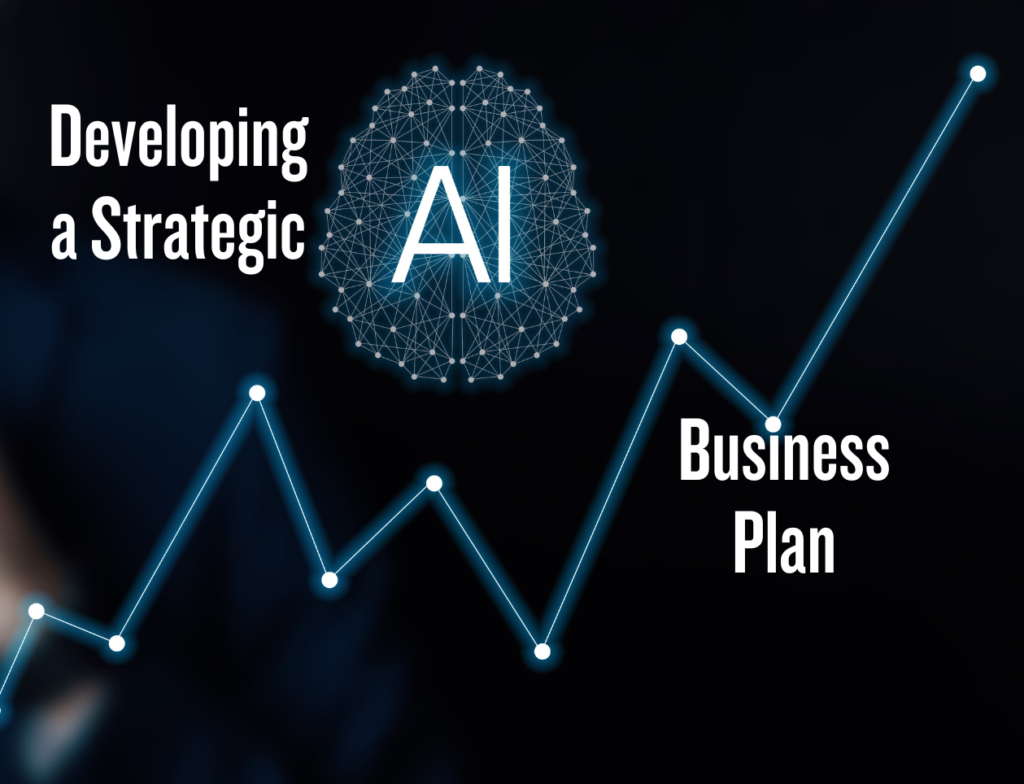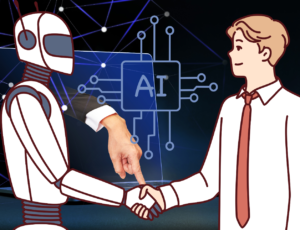Learning artificial intelligence (AI) abilities has become essential for anyone hoping to stay on the cutting edge of innovation in the ever changing field of technology. Artificial intelligence (AI) is in high demand, therefore it’s a wise choice for anyone considering a career shift, experienced developers, or students. This in-depth manual attempts to explore the field of artificial intelligence in great detail, offering guidance on what knowledge, skills, and resources to acquire. The post will purposefully use the goal keyword, “Develop AI skills,” and its variants throughout this journey.
What Are AI Skills?
Definition and Extent
A vast spectrum of competencies essential for developing, implementing, and managing intelligent systems are included in AI skills. Developing algorithms, models, and applications that mimic human intelligence requires these abilities. Machine learning, natural language processing, computer vision, and data analysis are important subfields in artificial intelligence.
Crucial Elements
1. Languages Used in Programming:
Python The preferred language for AI development is Python, which is well-known for its ease of use and extensive library.
R: Especially well-liked in AI applications for statistical analysis and data visualization.
2. Algorithms for Machine Learning: Supervised and Unsupervised Learning: It is essential to understand the principles behind these methods.
Three important algorithms to understand are decision trees, neural networks, and support vector machines.
3. Data handling: Preprocessing and data cleaning are essential for creating precise models.
Enhancing data to maximize model performance is known as feature engineering.
Up your generative AI game by studying under knowledgeable instructors.
What AI Skills to Learn
With AI being such a large field, picking the correct expertise is essential. Let’s examine a few well-known career pathways and the necessary skills for each.
1. Machine Learning Engineer: Gain proficiency in the development and use of machine learning models.
Expert tools for creating scalable and effective models include PyTorch and TensorFlow.
2. Data Scientist: Concentrate on deriving significant insights from huge datasets.
proficiency with Matplotlib and Seaborn, two programs for statistical analysis and visualization.
3. Expert in Natural Language Processing (NLP):
Focus on educating machines to produce and comprehend human language.
Utilize frameworks like spaCy and NLTK to handle and examine textual data.
4. Expert in Computer Vision: Acquire the ability to program computers to comprehend and evaluate visual data.
Use deep learning frameworks and OpenCV for applications like object detection and image recognition.
New Developments in Trends and Technologies
1. Strengthening Learning: Recognize the basic ideas behind using reward-based methods to train models.
Applications in autonomous systems, robotics, and gaming are growing quickly.
2. Explainable AI (XAI): Attend to the increasing demand for interpretability and transparency in AI models.
Learn about the decision-making processes that models for responsible and moral AI.
How to Develop AI Skills
Learning Routes and Techniques
Learning AI requires hands-on projects, self-paced investigation, and structured learning.
1. Structured Learning: Enroll in official courses and degrees related to machine learning and artificial intelligence.
Specialized AI courses with certification are available on platforms such as Coursera, edX, and Udacity.
2. Self-Paced Learning: For a flexible learning strategy, make use of internet tools, tutorials, and documentation.
Competitions on Kaggle offer practical experience in addressing problems in the real world.
3. Practical tasks: Utilize theoretical knowledge in real-world tasks.
Project-based learning is supported by collaborative platforms such as GitLab and GitHub repositories.
Skill Development Milestones
Tracking your progress through key milestones is essential for effective skill development.
| Milestone | Description |
|——————————|—————————————————————————————————–|
| Foundational Skills | Master programming languages, data handling, and basic algorithms. |
| Specialization | Choose a specific AI field and delve into advanced concepts. |
| Project Mastery | Successfully complete independent AI projects for real-world applications. |
How to Learn AI Skills
Online Resources and Courses
Learning AI abilities through online platforms is a popular and efficient method. Here are a few that stand out:
1. Coursera: Andrew Ng’s AI for Everyone: A great way for newbies to learn about AI ideas.
Deep learning through computer vision, machine learning, and natural language processing specialties.
2. edX: Microsoft’s “Introduction to Artificial Intelligence” covers the basics of AI theory and its uses.
MicroMasters courses for in-depth, specialized education.
3. Udacity, or “Intro to Machine Learning with PyTorch and TensorFlow” : Get practical experience using well-known AI frameworks.
Nanodegree programs for developing skills with a career focus.

Up your generative AI game by studying under knowledgeable instructors.
Books and Documentation
To gain a thorough understanding of AI ideas, books and documentation are essential resources in addition to online classes.
1. Aurélien Géron’s book “Hands-On Machine Learning with Scikit-Learn and TensorFlow” offers helpful advice on creating and implementing machine learning models.
2. Official Documentation: For comprehensive and current information, look through the documentation for frameworks like scikit-learn, PyTorch, and TensorFlow.
Where to Find Online Communities and Resources to Learn AI Skills
Making connections with a vibrant AI community improves your education. These are a few useful platforms:
1. Kaggle: Take part in contests, work together on projects, and gain knowledge from a lively community.
To learn more, investigate debates, kernels, and datasets.
2. GitHub: Browse and contribute to open-source AI projects while developing your portfolio.
Review code, work along with other developers, and keep abreast of market developments.
3. AI Conferences and Meetups: Participate in live or online gatherings to network with industry experts and learn about the most recent developments in the field.
Deep insights into state-of-the-art AI research are provided by conferences such as ICML and NeurIPS.
Learning Platforms – Including Fiverr
Introducing Fiverr as an AI skill learning platform has the potential to revolutionize the field. Fiverr offers a special marketplace where you can locate knowledgeable experts providing AI-related services. Here’s how to use Fiverr effectively:
1. AI Mentors and Tutors: Fiverr offers seasoned AI specialists for one-on-one tutoring sessions.
Receive individualized coaching based on your learning goals.
2. Project Collaboration: Work on real-world projects on Fiverr with AI specialists.
Acquire real-world experience and develop a portfolio that highlights your abilities.
3. Personalized Learning Services: Use Fiverr to locate independent contractors that provide personalized AI lesson plans.
Get tools, study materials, and advice that are specific to your goals and ability level.
Case Studies
Let us examine two case studies to demonstrate the efficacy of different learning strategies:
Case Study 1: Kaggle’s Self-Paced Education
As a budding data scientist, John made the decision to use Kaggle’s self-paced learning environment to improve his abilities. He worked with other data scientists, took part in contests, and used theoretical knowledge to solve practical issues. In a year,
John’s successful recruitment into a top tech business as a data scientist is evidence of the value of practical, project-based learning.
Case Study 2: Coursera’s Formal Education
Emily, a recent graduate, decided to sign up for Coursera’s machine learning specialization in order to follow an organized learning path. After completing the program, she obtained a recognized qualification and a solid foundation. Emily was able to take advantage of chances in machine learning research and development because of her academic background and her specialism.
In summary
To sum up, developing AI skills is a thrilling and fulfilling path that leads to a variety of job options. One can succeed in the field of artificial intelligence by mastering the principles, selecting a specialization, and using efficient learning techniques. To become an expert AI specialist, maintain your curiosity, practice frequently, and make use of the multitude of resources at your disposal. The opportunities to acquire AI skills are numerous and open to everyone, whether via books, online courses, community involvement, or websites like Fiverr.
Up your generative AI game by studying under knowledgeable instructors.








